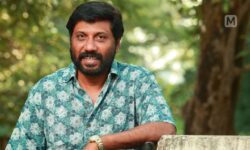KOCHI:
Drawing upon his experience as a multi-disciplinary artist, Orijit Sen, whose 1994 publication is considered to be India’s first graphic novel, is mentoring young artists as part of a workshop organised by the Kochi Biennale Foundation (KBF) at Pepper House.
The workshop, one of the many under KBF’s ongoing Master Practice Studios programme, attempts to chronicle lives of Kochi’s people, through the genre of non-fiction graphic art. Eleven art practitioners, from different Indian cities, have been selected for the workshop.
The open studio, where Sen and his students will present the work they have completed over the past month, gets underway on August 8 (Wednesday) and will run through August 18.
“The workshop aims to focus on creating visual narratives through the development of both story-making craft as well as non-textual knowledge,” said Sen, who added that the participating artists are involved in studio-based work as well as research in the community.
Besides Sen, the Master Practice Studios workshop will host a panel of prominent individuals in the field of graphic art towards the end of the programme. Participants of the workshop will get an opportunity to interact and seek critical feedback about their art from experienced graphic novelists and artists.
Participants of the workshop include Anjora Noronha, Amrita Barua, Shivangi Singh, Shromona Das, Kshiraja Krishnan, Sudharsha Subbiah, Ishita Sharma, Shaunak Samvatsar, Gaurav Sharma, Anupam Arunachalam, and Mohith Mohan.
A discussion on the workshop will be held on Tuesday, August 7 at 5 pm, featuring Jeremy Stoll (from the Metropolitan State University of Denver), animator and graphic artist Prakash Moorthy, Swiss artist Raphael Perret, and writer Vidyun Sabhaney.
“I have invited these participants to interact with the students and give insights on the work created as well as about their medium of work. It will be a great learning experience for the participating artists. Once the stories are completed, I believe it should be printed as an anthology and I will surely work towards it,” said Sen, a participating artist of Kochi-Muziris Biennale 2016.
“We selected nine interesting stories that represent real-life people – their daily life, struggles and triumphs in co-relation with the city. They are not heroic figures, yet their stories are captivating,” said the Goa-based artist, who explored Mattancherry, near Fort Kochi, in search of these narratives.
For Sen, documenting lives of Kochi’s people, instead of its history, was a conscious decision. “When a person visits any new city, they explore the place through its history, monuments and cultural anthropology. But most of us miss a very important aspect. A city is made by its people. The idea is to showcase the city through the eyes of its people, the protagonist of the story,” he said.
Anjora, an illustrator from Goa, is working on a story of a man who sells ice to fishing boats, local vendors, and seafood restaurants in Mattancherry. His day starts as early as 4 am, and, once in a week, he works at night sticking film posters.
“It’s fascinating to see the city through his life, and it is very interesting to create a storyboard on someone whose work is otherwise invisible in society,” said Anjora, who has created illustrations for children’s books. The workshop is her first stint as a graphic novelist.
Another participant, Anupam Arunachalam, a graphic novelist from Delhi, is chronicling the story of a trawler captain, who lost his children to the tsunami in 2004, and has been struggling to recover from alcoholism.
Some participants in the workshop are also focusing on the history of Kochi’s Dhobi Khana, the state’s decades-old community laundry space run by Tamils, and their battle against caste prejudices.
All are welcome to the student presentations (4pm, Wednesday, August 8) and open studios from August 8 – 18 at Pepper House.




